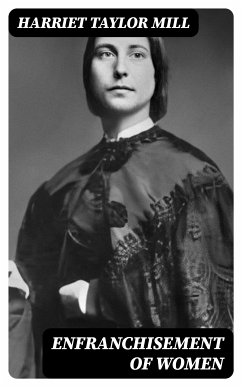Harriet Taylor Mill's book, 'Enfranchisement of Women', is a groundbreaking work that delves into the social and political issues surrounding the rights of women. Written in a persuasive and analytical style, the book explores the historical context of women's disenfranchisement and argues for the necessity of granting women equal rights. Mill's use of logical reasoning and fervent advocacy for gender equality make this book a must-read for anyone interested in feminist literature and social reform movements of the 19th century. With its compelling arguments and literary merit, 'Enfranchisement of Women' stands as a seminal work in the fight for women's rights. Harriet Taylor Mill's personal experiences as a feminist thinker and activist undoubtedly influenced her writing of this book. As a close confidant of John Stuart Mill and an advocate for women's rights, she brings a unique perspective to the discussion on gender equality. I highly recommend 'Enfranchisement of Women' to readers interested in feminist literature, social reform, and the history of women's rights movements.
Dieser Download kann aus rechtlichen Gründen nur mit Rechnungsadresse in A, B, BG, CY, CZ, D, DK, EW, E, FIN, F, GR, H, IRL, I, LT, L, LR, M, NL, PL, P, R, S, SLO, SK ausgeliefert werden.









